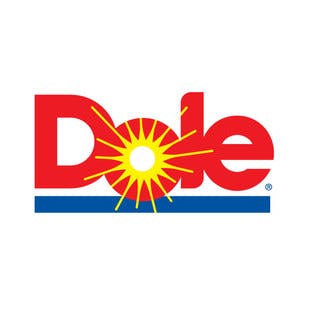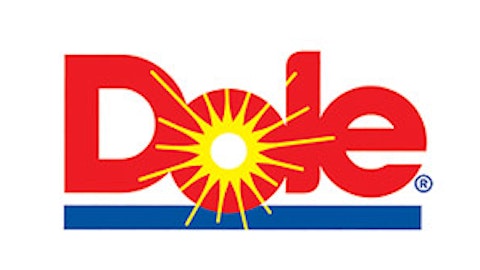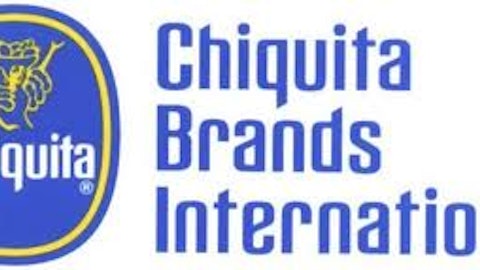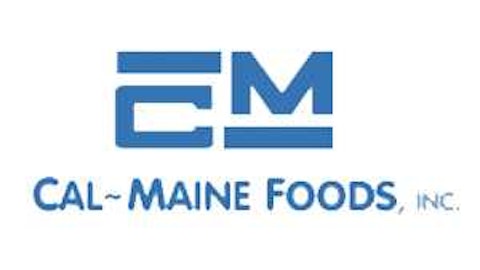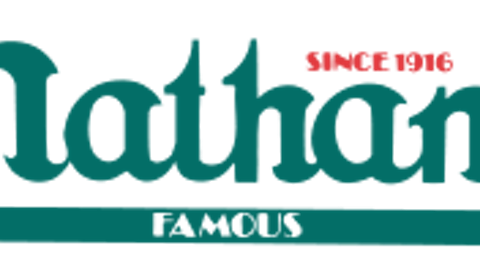A few years ago I heard a fascinating story on NPR regarding the future of bananas. Fascinating? Yes, in fact, it was. In short, there is a disease killing Cavendish banana plants, the preferred mass market banana that most individuals in the modern world eat on a regular basis. A decade ago it was predicted that Cavendish bananas would be extinct by now. I’ve watched the largest banana retailers looking for a sign of banana disappointment, or at the very least, the chance to make bad banana jokes regarding earnings.
Does the banana make that much of a difference? Read on. It does.
These earnings are less than “a-pealing”
Fresh Del Monte Produce Inc (NYSE:FDP) reported approximately $3.4 billion in net sales in FY 2012, of which $1.5 billion was in banana sales. Overall net sales were down 5% from 2011, and banana sales were down 7% for the year. Bananas and other fresh produce each represented 45% of the net sales.
Fresh Del Monte Produce Inc (NYSE:FDP) is sometimes confused with Del Monte Foods, a privately held company that makes pet foods and is in the canned-vegetable business. Fresh Del Monte bought Del Monte Foods Europe in 2004 and uses the Del Monte trademark for certain products worldwide.
Net sales for 1Q 2013 were up to $918.8 million, compared with $897.9 million in the prior-year period. The increase in overall net sales for the quarter was driven by expanded sales in fresh produce and increased banana volume. Sales of bananas rose 2% from the prior year quarter.
Gross profit for 1Q 2013 was $98.6 million, down from $112.4 million in 1Q 2012. Gross profit from bananas declined 21%, due to price volatility and a 2% increase in unit costs. Net sales for the first quarter of 2013 were $918.8 million, compared with $897.9 million in the prior year period. Net income for 1Q 2013 was down to $41.1 million, much lower than the $62.5 million of 1Q 2012.
The decrease in gross profit for the quarter was the result of weakness in the European banana-business segment, where each of the banana retailers cited lower selling prices, a result of excess industry supply and lower consumer demand due to the weak economy. This is not a problem exclusive to produce. It is widespread and found across many industries (particularly of note is fast food). With the widespread and lasting impact of the European financial difficulties, the European economy must be taken into consideration by investors not only looking at these companies but all companies with international reach.
Fresh Del Monte Produce Inc (NYSE:FDP) hopes to improve revenue and be the top banana again by increasing the number of exports over the next two-to-three years. In May, the company announced a three-year share-buyback plan of approximately $150 million.
Monkey business at Dole
And then there is Dole Food Company, Inc. (NYSE:DOLE), a company making so much news it is hard to take it all in!
Dole suffered significant losses in 4Q 2012 and FY 2012, and 1Q 2013 did not show much improvement. In FY 2012, Dole suffered a loss of $142 million compared to $42 million in FY 2011. Revenue for FY 2012 fell to $4.2 billion from $4.8 billion the previous year.
For 1Q 2013, Dole Food Company, Inc. (NYSE:DOLE) reported another decline in numbers. Adjusted EBITDA from continuing operations was $34 million compared to $44 million in 1Q 2012. However, fruit sales increased 8% mainly due to higher sales of bananas and other fresh fruits in Europe. Go bananas!
Dole Food Company, Inc. (NYSE:DOLE) sold its worldwide packaged foods and Asia fresh businesses in April to Itochu for approximately $1.7 billion in cash. The results of this sale on earnings have not yet been reported.
After the sale to Itochu, the company became much more at risk to the volatility of the produce market. For instance, Dole Food Company, Inc. (NYSE:DOLE) is the second-largest U.S. provider of strawberries. The company has indicated that the volatility in its strawberry business has been especially pronounced during the first half of 2013 due to unusual weather conditions in California, at a time when the best prices are usually available for strawberries. Without the Asian market included anymore, the now-smaller company is more at the mercy of regional weather variations.
With investors already concerned about this vulnerability, Dole Food Company, Inc. (NYSE:DOLE) announced a share-repurchase program for up to $200 million of its outstanding common stock. But just days later the company put an indefinite suspension on the buyback, and announced that it would update its shipping fleet instead.
This week, Dole Food Company, Inc. (NYSE:DOLE) Food CEO David Murdock made an unsolicited offer to buy the company with a bid that values the entire business at approximately $1.1 billion. Murdock currently has about a 39.5% stake in Dole, according to FactSet.
With all of these strange movements in such a short time at the company, maybe it is a good thing for investors that Murdock wants to buy it out and take it private.
There’s always money in the banana stand
Chiquita Brands International, Inc. (NYSE:CQB) is the number-one provider of bananas in Europe and number two in North America. In 2012, bananas accounted for 64% of company sales.
Almost one year ago the company announced a major restructuring that included a renewed focus on banana sales. The new management has worked to position Chiquita as a high-volume, low-cost producer.
Chiquita Brands International, Inc. (NYSE:CQB) reported a GAAP net loss of $408 million in 2012 compared to GAAP net income of $57 million for FY 2011. For 4Q 2012, Chiquita reported GAAP net loss of $335 million compared to GAAP net loss of $16 million in 4Q 2011. These initial numbers may scare investors off, but wait and look at the 2013 numbers. In 1Q 2013, the company reported GAAP net income of $2 million, a significant improvement over the year previous net loss of $11 million. Things are definitely on the mend at Chiquita.
